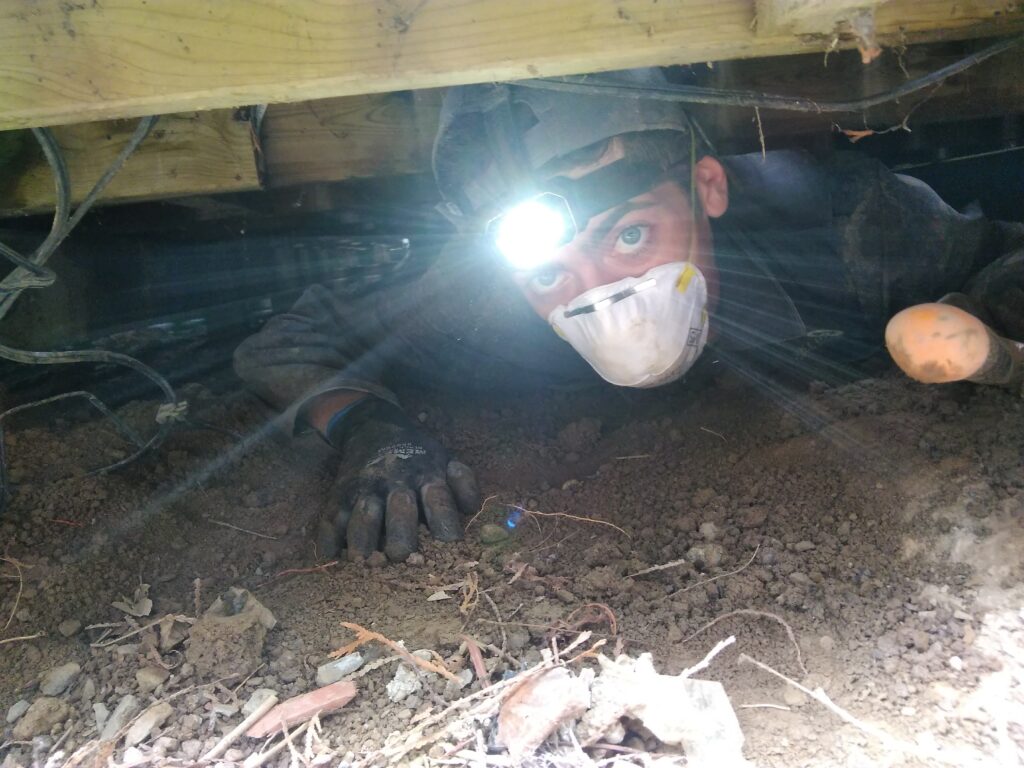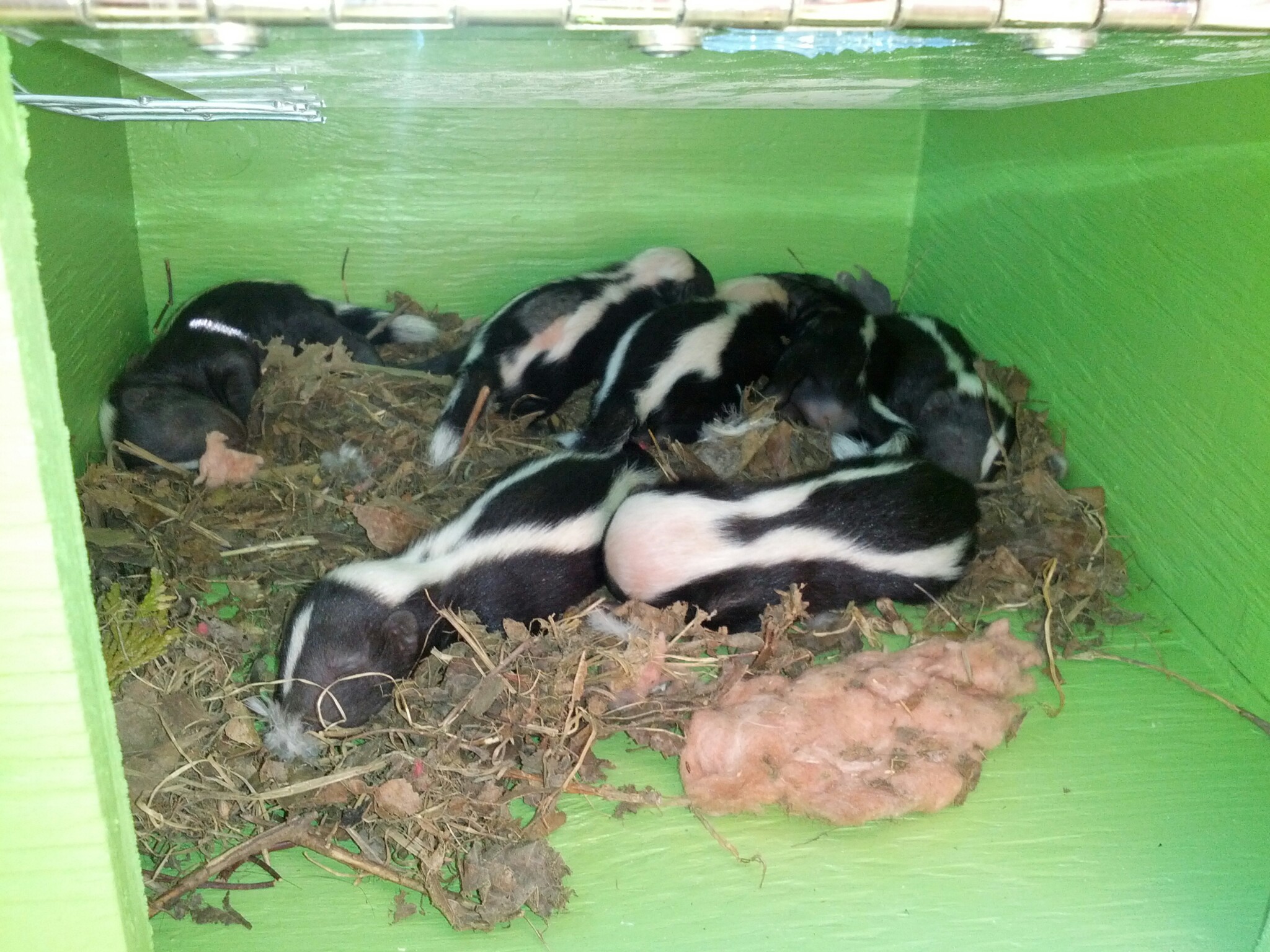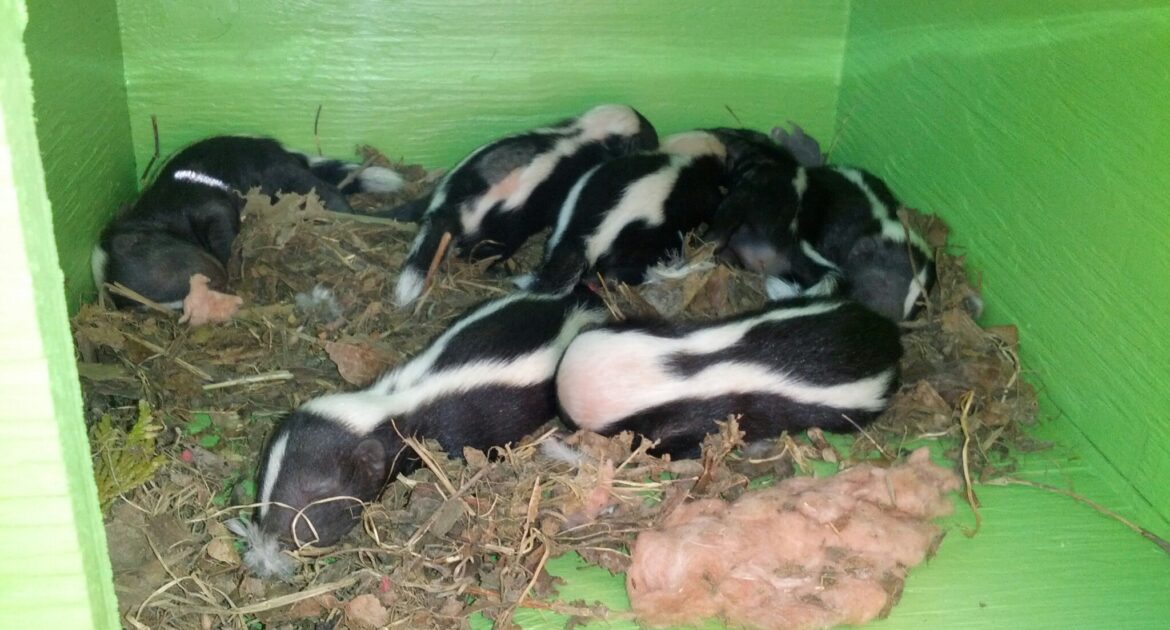February is the beginning of skunks’ mating season, which is funny since it is also the month of Valentine’s Day. While love is in the air, skunk removal is incredibly challenging during the season because skunks are a little more sensitive and agitated, resulting in more defensive posturing and spraying.
When Is Skunk Mating Season?
Skunk mating season is roughly two months long, usually beginning in February and ending in March. The mating season may be premature or delayed depending on the weather and location.
Warmer winters with early thaws may encourage males to seek a mate in early February. Colder and harsher winters may keep the animals sheltered in their dens through March, pushing mating season into April.
Neighbourhood Odours
During mating season, neighbourhoods may notice an increase in skunk odours. Miles will come from up to six miles away to find a mate. When a male finds a female, she can discourage his advances by emitting an odour. The increased and pungent aroma is a sign of females repelling males in pursuit of the right mate.
Skunk Babies
A skunk’s gestational period is between 60 and 75 days. The mother will still forage for food during this time but will also be a little more defensive than usual, meaning she may spray more frequently to ward off potential threats. When she has her babies, approximately two to 15 per litter, she remains defensive and protective.
What Are Wildlife Removal Challenges During This Time?
Skunk removal during mating season and in the months following is challenging. In the early phase of mating season, wildlife technicians may encounter aggressive males. In the latter part of the season and beyond, they may encounter defensive females.
Defensive Mothers
In the latter part of the season, especially closer to May and June, wildlife removal services must deal with mothers and babies. Like any good mom, mother skunks are incredibly protective of their offspring and will fight to protect them.
Mother skunks will hiss and charge wildlife removal specialists. If provoked, the animal will also spray to defend its young.
Frequent Spraying
Because mother skunks are on high alert when their babies are born, they are defensive and more aggressive. They are more willing to spray predators or perceived threats to keep them away from dens and babies. Wildlife removal services can often remove mothers and babies without the interaction resulting in a spray.
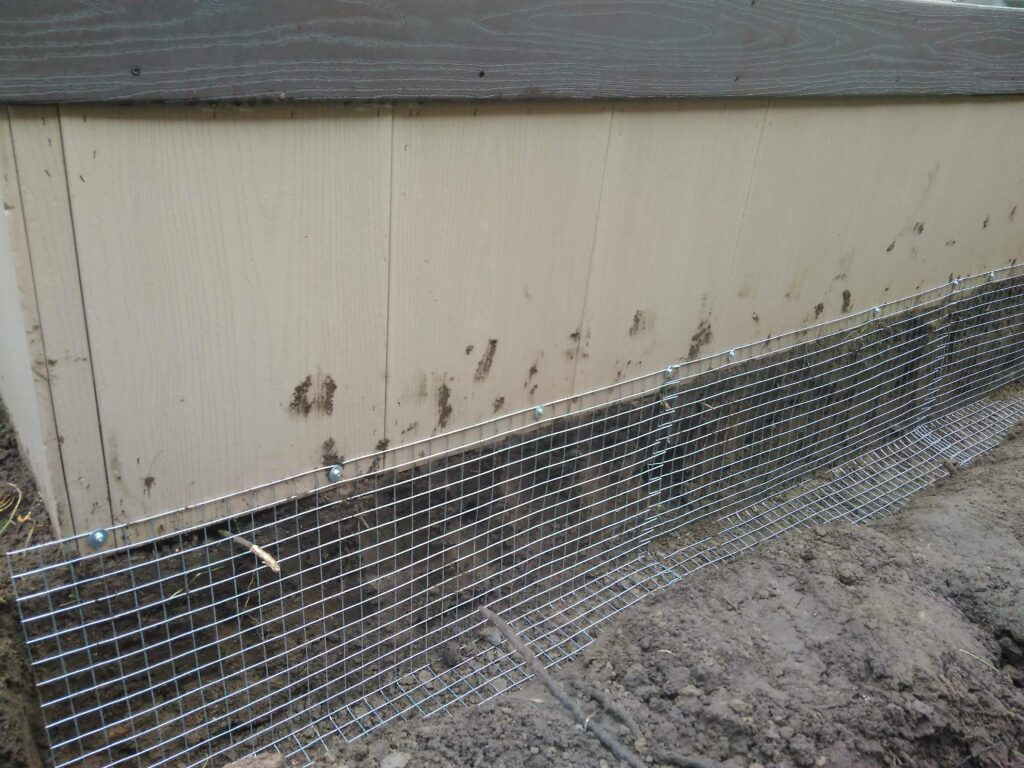
How Can Wildlife Technicians Offer Spray-Free Removals?
Wildlife technicians can provide spray-free removals because they are trained and experienced professionals. A humane wildlife removal expert can remove skunks from areas with minimal, if any, direct contact. Companies like Skedaddle Humane Wildlife Control prefer to use exclusion devices and humane harassment techniques to encourage skunks to nest elsewhere.
When Do Skunks Try To Invade Homes and Residential Properties?
Skunks will typically start looking for den sites before and during mating season. The animals want to find a suitable home before they become pregnant and have babies. To discourage skunks from nesting on your property, you need to start preventative measures in late winter or early spring.
It is wise to hire a wildlife control company to inspect your property and ensure no wildlife is currently living there. If you seal spaces before checking them, you may accidentally seal an animal inside.
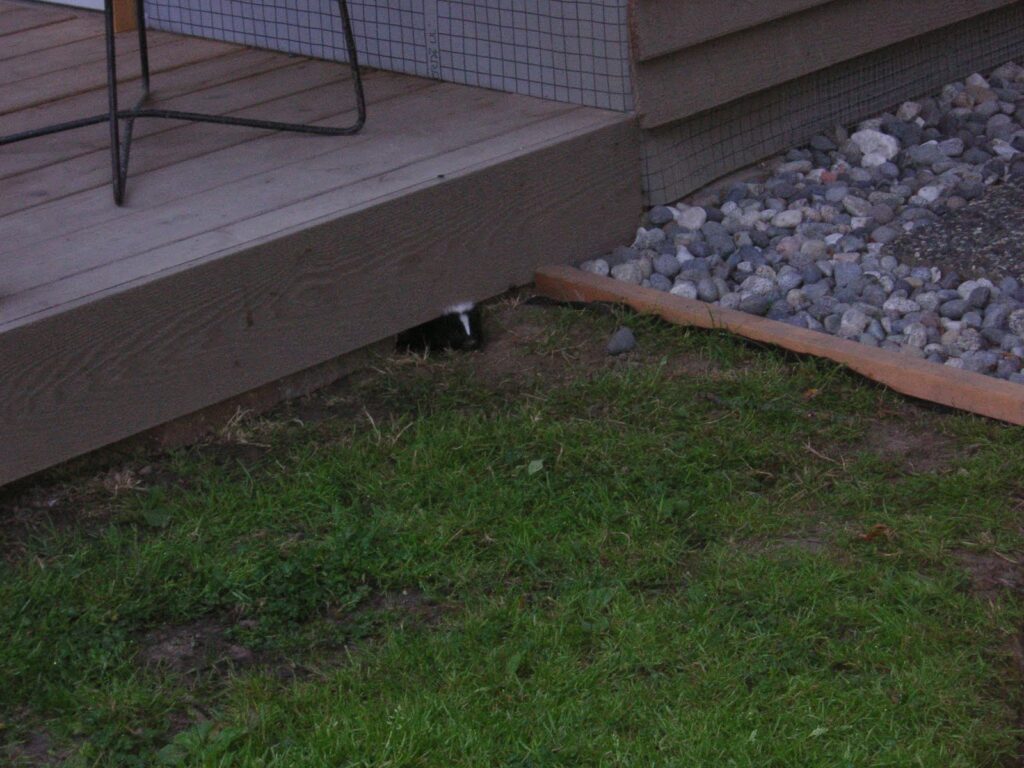
Should You Hire Wildlife Control in Newmarket?
If you believe a skunk is living on your property, you should call a wildlife control service. Removing the animal or animals from your property is humane, and it protects your space. If you want to hire a local wildlife control company, contact Skedaddle Humane Wildlife Control and schedule a property inspection.
